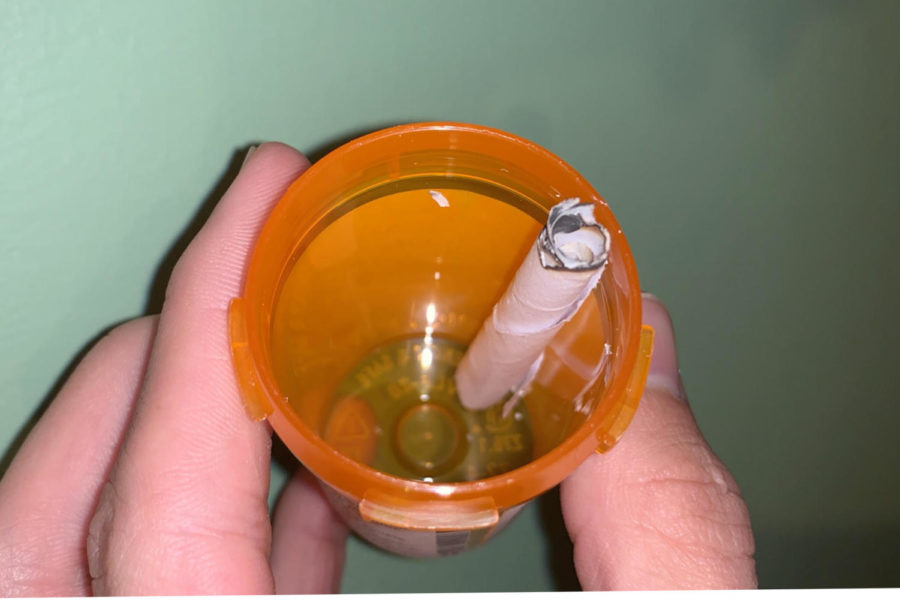On Election Day in Missouri, voters from all across the state voted ‘yes’ on Missouri Constitutional Amendment 2, which legalized marijuana in Missouri for medical use.
Known to many voters as “the weed amendment,” it allows for the use of marijuana for medical purposes, as well as adding a four percent tax on the product, all of which will be put towards funding the Missouri Veterans Commission, an organization which seeks to provide healthcare for veterans.
“I think it’s good that the taxes will be used for something to help others,” senior Nick Schumacher said. “It’s hard to not be in support of services for veterans since they fought for us.”
Senior Alex Evens turned out to vote on Election Day, voting ‘yes’ on the amendment.
“For starters, it’s been shown that marijuana can be a better treatment to many diseases as opposed to traditional painkillers,” Evens said. “For the people that would be using it for its medical purposes, I don’t think it would be a gateway drug. Also, the financial benefits to taxing the drug have been shown in other states to create a high economic benefit for all its residents.”
The amendment passed with 66 percent of the vote, part of which can be attributed to the surge in young voters that participated in the election. According to Pew Research, as generations progress, the support for marijuana legalization becomes stronger, with a 20-point gap between millennials and their parents.
“I think Generation Z is more socially liberal than generations past,” sophomore Sid Das said. “I think that there will be changes regarding marijuana legislation in the coming years as the government attempts to capture the financial benefits of the industry.”
Medical marijuana is used to cope with and treat a variety of diseases and conditions, such as epilepsy, which causes uncontrollable seizures. Senior Luke Griffith suffers from seizures and feels good about the passing of the amendment.
“I haven’t been diagnosed with epilepsy, but I have had two seizures in the past six months and I’m taking medication for it,” Griffith said. “I think it [medical marijuana] helps calm people who have[seizures]. Even if it helps just a few people, we should be open to legalization as a population.”




![Smiling in a sea of Longhorns, Fox 2 reporter Ty Hawkins joins junior Darren Young during the morning Oct. 3 pep rally. The last time West was featured in this segment was 2011. “[I hope people see this and think] if you come to [Parkway] West, you will have the time of your life because there are so many fun activities to do that make it feel like you belong here. I was surprised so many people attended, but it was a lot of fun,” Young said.](https://pwestpathfinder.com/wp-content/uploads/2025/10/Edited2-1200x798.jpg)
![West High seniors and families listen as a representative of The Scholarship Foundation of St. Louis, Teresa Steinkamp, leads a Free Application for Federal Student Aid (FAFSA) workshop. This session, held in the library, provided guidance on financial aid, scholarships and student loan options. “This event is very beneficial for any seniors who are applying to or considering applying to colleges after high school [because] the cost of college is on the rise for seniors and parents,” college and career counselor Chris Lorenz said.](https://pwestpathfinder.com/wp-content/uploads/2025/09/DSC_4478-1200x778.jpg)
![Senior Kamori Berry walks across the field during halftime at the Homecoming football game on Sept. 12. During the pep assembly earlier that day, she was pronounced Homecoming Queen. “I thought it was nice that the crowd [started] cheering right away. I know [my friends] were really excited for me, and my family was happy because typically non-white people don't win,” Berry said.](https://pwestpathfinder.com/wp-content/uploads/2025/09/DSC7046-Enhanced-NR-1200x798.jpg)



![Pitching the ball on Apr. 14, senior Henry Wild and his team play against Belleville East. Wild was named scholar athlete of the year by St. Louis Post-Dispatch after maintaining a high cumulative GPA and staying involved with athletics for all of high school. “It’s an amazing honor. I feel very blessed to have the opportunity to represent my school [and] what [it] stands for,” Wild said.](https://pwestpathfinder.com/wp-content/uploads/2025/05/unnamed-6-1200x714.jpg)
![The Glory of Missouri award recipients stand with their certificates after finding out which virtue they were chosen to represent. When discovering their virtues, some recipients were met with contented confirmation, while others, complete surprise. “I was not at all surprised to get Truth. I discussed that with some of the other people who were getting the awards as well, and that came up as something I might get. Being in journalism, [Fellowship of Christian Athletes and] Speech and Debate, there's a culture of really caring about truth as a principle that I've tried to contribute to as well. I was very glad; [Truth] was a great one to get,” senior Will Gonsior said.](https://pwestpathfinder.com/wp-content/uploads/2025/04/Group-Glory-of-Missouri.jpg)

